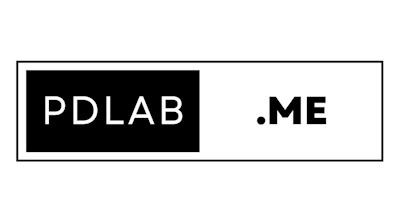
FOUNDER, PDLAB.ME

Google has introduced AI overviews in May 2024, which was earlier called search generative experience. Google’s latest innovation, AI overviews powered by the Gemini model, marks a new experience of AI content for Google Searchers in SERPs. This new technology promises to enhance the efficiency and accuracy of search results, it simultaneously poses a serious threat to web publishers who rely heavily on organic search traffic.
Understanding Google’s AI Overviews
Google’s AI overviews, previously known as Search Generative Experience (SGE), leverage the Gemini model to provide users with concise, AI-generated summaries of search queries. As described in Google’s keynote, this feature aims to “let Google do the Googling for you,” simplifying the search process by delivering direct answers rather than a list of links. The Gemini model integrates advanced capabilities such as multi-step reasoning, planning, and multimodality, combined with Google’s robust search systems, to create highly relevant and precise results.
The Predicted Impact on Web Traffic
A Decline in Organic Search Traffic
One of the most significant concerns surrounding AI overviews is the anticipated decline in organic search traffic to websites. According to Gartner, traffic from search engines is projected to decrease by 25 percent by 2026. Ross Hudgens, CEO of Siege Media, estimates that some publishers could experience a 10 to 20 percent reduction, with more substantial impacts for others. The Washington Post has labeled this shift as “carnage for web publishers,” highlighting the existential threat to the millions of creators and publishers who depend on search engine traffic for their survival.
Reduced Visibility for Traditional Web Results
AI overviews occupy a substantial portion of the search engine results page (SERP). Data from ZipTie and Search Engine Journal contributor Bart Goralewicz indicate that AI overviews cover over 80% of search queries across most verticals. Furthermore, under the unique ranking system for AI overviews, only 47% of the top 10 traditional web results appear as sources powering the overview generation. This significant reduction in visibility for conventional search results translates into fewer click throughs and diminished traffic for many websites.
The Shift in Information Control
Smaller publishers may get lost out
As AI-generated content becomes the primary source of information, the role of individual creators and smaller publishers may diminish. This shift could lead to a more popular set of information visible in SERPs, where the diversity of perspectives and voices is reduced, ultimately impacting the richness of content available to users.
The Risk to Content Creators
As the traffic drop seems inevitable, for content creators and web publishers, the rise of AI overviews presents a formidable challenge. Many rely on the traffic generated by traditional search results to monetize their content through advertisements, affiliate marketing, or direct sales. With the advent of AI-driven search, these revenue streams are at risk. As Google increasingly becomes the sole provider of information, and AI overviews will keep the users on google platform for a longer time rather than sending users to respective results from web publishers. This will reduce the economic viability of maintaining independent websites and creating unique content comes into question.
Sunder Pichai gave his point of view on this topic in a recent interview:
“I look at our journey, even the last year through the Search Generative Experience, and I constantly found us prioritizing approaches that would send more traffic while meeting user expectations. We think through that deeply and we actually change our approach. If there are areas where we feel like we haven’t fully gotten it right, we are careful about rolling it out. But I think what’s positively surprising us is that people engage more, and that will lead to more growth over time for high-quality content.”
On the question of visibility in SERP for publishers, he added
“They think about this at a deeper level than I do. I think we are constantly trying to give more visibility, but also we want people to create content that’s good. And we are trying to rank it and organize it, so I think there’s a balance to be had. The more we spec it out, then the more people design for that. There’s a tradeoff there, so it’s not clear to me what the right answer is.”
I think its clear from both the quotes, that Google very well knows the loss which web publishers are going to suffer, and these are just some diplomatic statements. These statements are made just to keep publishers interested but in reality they want the users to spend more time on google.com reading AI overviews, so that Google gets higher time spent and makes more money.
A Personal Perspective
As someone who has spent years in the field of digital content business, witnessing the evolution of search algorithms and the rise of AI has been both fascinating and daunting. I recall the early days when optimizing for search engines meant stuffing articles with keywords and building countless backlinks. The landscape has since transformed, with quality content and user experience becoming paramount. Today, time spent on a page, of users from SERPs on to a website, may be the single biggest metric for SEO. Now, with AI overviews poised to reshape the search experience once again, the challenge for web publishers, since their visibility is going to be limited.
I recently spoke with fellow content creators who shared their strategy for navigating this transition. They emphasized the importance of diversifying traffic sources, from social media, using expert opinion and collaborations with influencers and other content creators. This multifaceted approach is not just the way to succeed on multiple platforms and not just google, but also help create better content, with relevant embeds and expert point of views added to the content.
For web publishers and content creators, adapting to this new reality will require innovative strategies and a willingness to embrace change. By focusing on quality content, Social media embeds, addition of expert opinion and finally diversifying traffic sources(beyond google), and understanding of new AI tools, will keep alive in this new battleground.